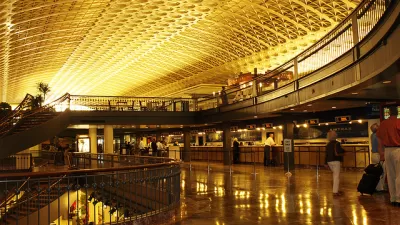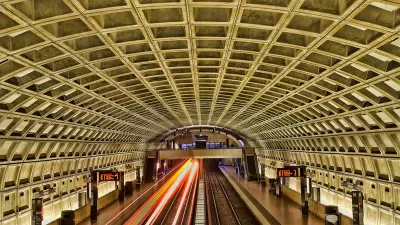Transit ridership is up in Seattle, and higher income riders are more likely to use it.

Gene Balk reports on new census data about transit ridership demographics in the Seattle area. Ridership has steadily increased, and now over 10 percent of workers commute by transit. "Since 2010, we've experienced the second-biggest increase in the share of transit commuters among the 50 largest U.S. metro areas, behind San Francisco," says Balk.
Seattle is one of six metro areas in the country where a larger percentage of high earners, workers with annual incomes above $75,000, use transit as compared to lower earners—those with incomes below $35,000. In Seattle, 11 percent of high earners and 9.5 percent of lower earners commute on transit, a 1.5 percent difference.
Balk says regional investments in transit are related to the increases in ridership:
We've invested more heavily in transit than any other region, and it's paying off. Even before the passage of the Sound Transit 3 package, the Seattle area was spending more, per capita, on new transit projects than any city in the country.
He also considers how the income demographics of riders might be a factor. One idea is that public support for transit investments is more robust in Seattle because the incomes of riders span a broader range than in other metropolitan areas.
FULL STORY: Seattle’s high earners are more likely to commute on public transit than any other income group

Maui's Vacation Rental Debate Turns Ugly
Verbal attacks, misinformation campaigns and fistfights plague a high-stakes debate to convert thousands of vacation rentals into long-term housing.

Planetizen Federal Action Tracker
A weekly monitor of how Trump’s orders and actions are impacting planners and planning in America.

In Urban Planning, AI Prompting Could be the New Design Thinking
Creativity has long been key to great urban design. What if we see AI as our new creative partner?

King County Supportive Housing Program Offers Hope for Unhoused Residents
The county is taking a ‘Housing First’ approach that prioritizes getting people into housing, then offering wraparound supportive services.

Researchers Use AI to Get Clearer Picture of US Housing
Analysts are using artificial intelligence to supercharge their research by allowing them to comb through data faster. Though these AI tools can be error prone, they save time and housing researchers are optimistic about the future.

Making Shared Micromobility More Inclusive
Cities and shared mobility system operators can do more to include people with disabilities in planning and operations, per a new report.
Urban Design for Planners 1: Software Tools
This six-course series explores essential urban design concepts using open source software and equips planners with the tools they need to participate fully in the urban design process.
Planning for Universal Design
Learn the tools for implementing Universal Design in planning regulations.
planning NEXT
Appalachian Highlands Housing Partners
Mpact (founded as Rail~Volution)
City of Camden Redevelopment Agency
City of Astoria
City of Portland
City of Laramie





























